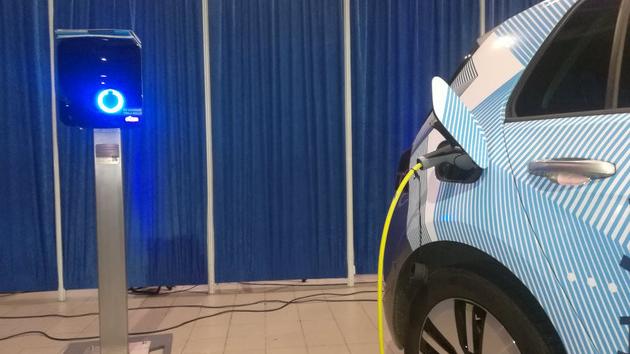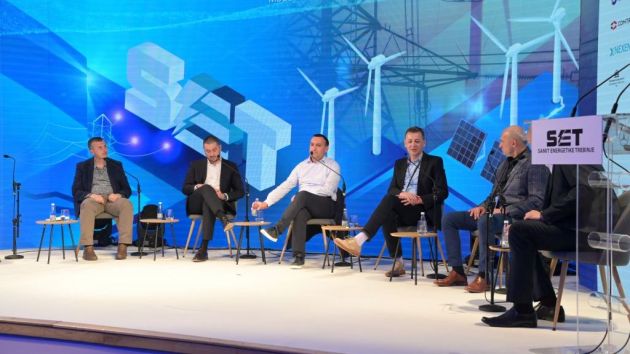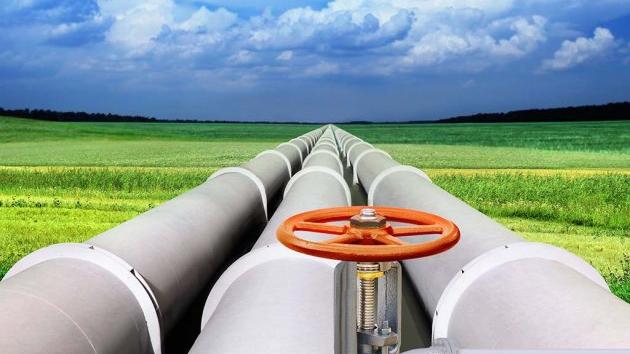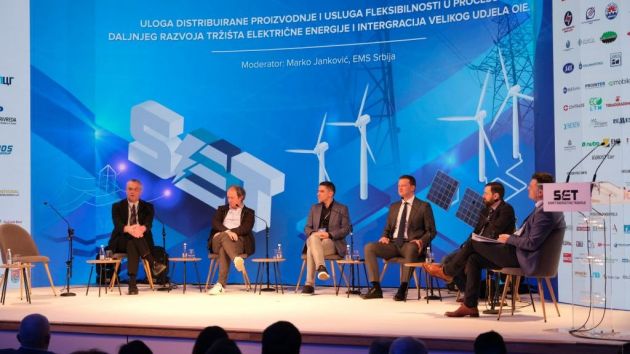SET 2023: Without investment in RES, there will not be sufficient energy, but there is no present or near future without thermal power plants
Source: eKapija
 Sunday, 09.04.2023.
Sunday, 09.04.2023.
 23:29
23:29
 Sunday, 09.04.2023.
Sunday, 09.04.2023.
 23:29
23:29
(Photo: SET/3D Media)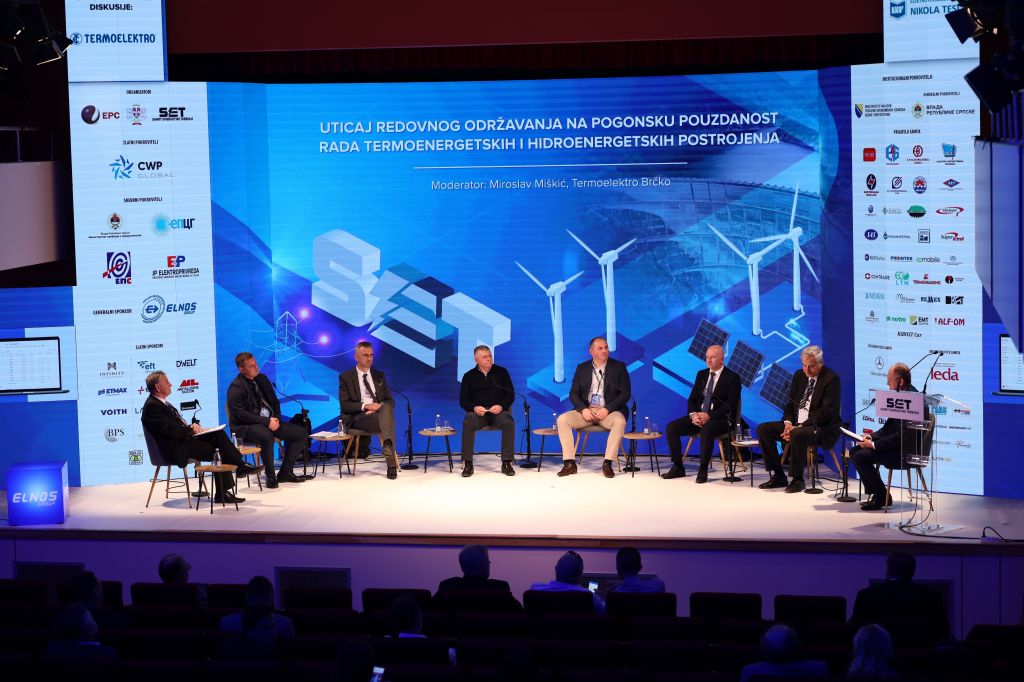

- Taking that into account, as well as the younger generations bringing more grit, more intelligence, it would be completely logical for us today to talk about the new MW being built, and yet we have not done anything in the last 30 years. If we cultivate knowledge and expertise and if we get to know our plant facilities well, then we will be able to respond to all these tasks. This is especially important now in the energy transition when we have to implement new national energy policies and achieve the transition to technologies that do not emit carbon dioxide. We should be aware that the energy transition is inevitable, there is no "shall we or shall we not".
As he adds, by doing so, we must take into account that all energy transitions that have taken place so far - the transition from wood to coal, from coal to oil, from oil to gas, from gas to nuclear fuel, happened in parallel. All those transitions were based on convenience, that is, the availability of resources, which is very important.
- We have thermal power plants because of the availability of resources, namely coal, and the whole world has it. The first condition was the availability of resources, and the second is the degree of technological progress, and all previous transitions were the result of improvements in the degree of beneficial effects, technologies in energy, materials... and all this entailed new progress and a kind of energy transition.
As Nadarevic explains, this is the first transition that did not result solely in technical requirements, it was initiated by regulatory incentives and ultimately does not have the goal of increasing the profits of electrical companies, i.e. improving the degree of usefulness of some machinery, improving safety technology... the ultimate goal is the decarbonization of the energy system and reduction of harmful impact.
- We have to accept it. This transition was suggested by scientists and initiated by lawyers and economists, and engineers are the ones who should implement it. Because engineers are not in the foreground, and if knowledge is at a low level, then engineering results can be multiplied by zero. We must take good care of what we will do and how we will do it. If and when we reach the ultimate decarbonization goals, that means no more fossil coal-fired power plants. Whether it will happen, when and at what price, it is difficult to predict. Until it happens, someone has to cover the daily load base diagram, which is the result of consumption, and I don't see what else can do it in our conditions, except thermal power plants, because the renewable sources have fluctuating power - we know that solar does not work at all for 12 hours, afterwards it works with 20 % of capacity, then works at maximum for four hours, after which the capacity decreases. Thermal power plants will continue to work in significantly different conditions than today, and those conditions will be significantly more difficult for their work.
Nadarevic further explains that although production in thermal power plants is the most complicated process of electricity generation and requires a higher level of knowledge, expertise and precautions, there are not so many technological lines that should be combined.
- Regardless of the fact that it is the most complex, the technique has answered all but one problem, and that is CO2. There is no problem with SOx and NOx. It is technically solvable at acceptable prices, and the fact that we did not work on it does not justify us saying that it is not technically solvable. It is unsolvable for us because we did not solve the problems in time. The world solved it a long time ago, Europe solved SOx back in the '90s. Why do we have a problem with desulfurization now? Because our references ask for three to five years, and no one was active for five years except Ugljevik, because when Europe did desulfurization back in 1990-1995, we were preoccupied with other things. Our law doesn't recognize that, it says three to five years, and now we're practically eliminating potential producers who don't have references because they haven't done it. I witnessed myself that, in the power plant, they can lower SOx emissions - they go up to 195, because the norm is 200, and then they drop down to 25, of course, they inject more absorbent and then raise it again to 200, because that's what the economy requires. So, everything is solvable. Why didn't we solve it? Among other things, the answer may lie in the wartime conditions, to a certain degree in the regulatory inconsistency, and largely in the knowledge base. We are a little late to certain technologies.
Slobodana Subara
The Energy Summit Trebinje 2023 was held from March 22 to 24, organized by Elektroprivreda RS, the City of Trebinje and SET.
Portal eKapija is the media sponsor of the Summit.
Tags:
SET Trebinje
Energy Summit in Trebinje
EPHZHB
Faculty of Mechanical Engineering in East Sarajevo
Nikola Tesla Institute Belgrade
Termolektro Brcko
ETF
TPP Stanari
TPP Ugljevik
TPP Gacko
HPP Trebinje
HPP Bocac
HPP Capljina
HPP Jajce 1
HPP Jajce 2
HPP Mostar
HPP Rama
HPP Mostarsko blato
Aco Benović
Savo Mirkovic
Zoran Ciric
Stojan Simic
Drazenko Raic
Fadil Nadarevic
RES
renewable energy source
revitalization of hydropower plants
revitalization of thermal power plants
desulphurization
decarbonization
aggregate overhaul
turbine overhaul
Comments
Your comment
Most Important News
Full information is available only to commercial users-subscribers and it is necessary to log in.
Follow the news, tenders, grants, legal regulations and reports on our portal.
Registracija na eKapiji vam omogućava pristup potpunim informacijama i dnevnom biltenu
Naš dnevni ekonomski bilten će stizati na vašu mejl adresu krajem svakog radnog dana. Bilteni su personalizovani prema interesovanjima svakog korisnika zasebno,
uz konsultacije sa našim ekspertima.


 Izdanje Srbija
Izdanje Srbija Serbische Ausgabe
Serbische Ausgabe Izdanje BiH
Izdanje BiH Izdanje Crna Gora
Izdanje Crna Gora


 News
News







